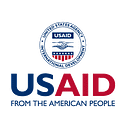Multifaceted Support for COVID-19 Vaccination
LHSS Project is collaborating with country partners to strengthen systems and advance vaccine equity
One year ago, a mighty, planet-wide effort to stem the spread of the novel coronavirus and massively scale up capacity to care for stricken patients had just roared to life. Today, countries across the globe face an equally urgent imperative: to vaccinate their populations and thereby end the pandemic.
It’s an extraordinarily complex undertaking, but some of the key approaches refined over the past year apply to the vaccination challenge: strengthening community-level planning, supporting capacity development for frontline health workers, procuring necessary materials, combating misinformation and communicating effectively, and collecting high-quality data to inform ongoing decision making. As ministries of health activate these approaches to rapidly roll out COVID-19 vaccines, the Local Health System Sustainability Project (LHSS) is on the ground supporting their efforts.
LHSS is currently collaborating with governmental entities and other partners to help Colombia, Kyrgyz Republic, and Tajikistan implement their national COVID-19 vaccine plans. Our technical assistance not only supports immediate efforts to scale up and adapt existing vaccination programs to facilitate COVID-19 vaccine delivery but is also strengthening these countries’ capacity to manage other public health efforts in the future.
Here are highlights of the many types of support we’re providing.
Micro-planning to achieve equitable vaccination
Making sure that the rich and the poor, the empowered and the marginalized have equal access to COVID-19 vaccines is in everyone’s interest. In Colombia, the LHSS Project is supporting vaccine equity by working with the Ministry of Health and local health secretariats in urban and rural areas to identify populations eligible for vaccination, with a special focus on migrants, vulnerable ethnic groups, and low-income and uninsured populations.
“We’ve supported local leadership in the deployment of 15 teams to the territorial entities to support Colombia’s COVID-19 Expanded Immunization Plan. These teams review databases provided by the Ministry of Health and coordinate with insurers, health secretariats, providers, and other partners to identify and locate populations eligible for vaccination,” said LHSS Colombia COVID-19 Response Lead Esmily Ruiz.
In Tajikistan, LHSS will develop the capacity of the Republican Center for Immunization and Prevention to improve access to vaccination services for vulnerable populations in rural areas, with attention to both logistics and demand creation.
Strengthening supply chain systems
Well-developed supply chains and strong supply chain management are critical to rapidly distributing COVID-19 vaccines throughout a country’s population. LHSS is working with the USAID Mission in the Kyrgyz Republic and other Ministry of Health and Social Development partners to address gaps in the country’s vaccine supply chain. Measures include reinforcing the ministry’s capacity to select, quantify, and procure approved COVID-19 vaccines; establish and maintain the vaccine cold chain; develop safe and equitable delivery systems; and ensure tracking of the vaccines via batch numbers and geographical locations.
“The revised regulatory framework and digitalization of processes for vaccine supply chain management will contribute to equitable, timely, uninterrupted, and safe delivery of vaccines to the entire population,” said LHSS Kyrgyz Republic Country Director Cholpon Asambaeva. “And the health care workers will have user-friendly tools to communicate better with clients about vaccination and complete preliminary investigations when necessary.”
Developing health workers’ capacity to administer vaccines
COVID-19 vaccines listed by the World Health Organization for emergency use are remarkably safe and effective. Still, a safe vaccination program requires that vaccinators understand proper preparation and administration of the injections, contraindications, and possible side effects and complications. In Tajikistan, LHSS is collaborating with the Republican Center for Immunization and Prevention on capacity development for the primary health care providers responsible for administering COVID-19 vaccinations according to protocols. LHSS will also help strengthen supportive supervision, ensuring that vaccinators receive continued, nonpunitive help perfecting their vaccination skills.
Increasing community demand for vaccines
Community trust in the safety and effectiveness of COVID-19 vaccines and high demand for vaccination are among the most important factors for a successful vaccination effort. In Colombia, LHSS is working with the Ministry of Health and local health secretariats to identify the information needs of migrants and other vulnerable populations.
With these insights, LHSS will support the development of communication products that the ministry, local entities, and health care providers can use to promote vaccination and counter disinformation. LHSS will also help develop the capacity of local media to mitigate vaccine disinformation, and support the creation of community communications campaigns promoting vaccination.
“We’re about to conduct research to better understand rumors and misinformation related to the vaccine process, but we do know that brand preference is a challenge and people show up to appointments demanding one type of vaccine over another,” said LHSS Colombia Communications Specialist Paula Pinzon.
Improving monitoring of vaccine coverage
Achieving broad, equitable vaccine coverage requires rigorously monitoring the results of vaccination activities and continually adjusting to meet needs. In Colombia, LHSS is collaborating with the Ministry of Health to adapt current monitoring and evaluation guidelines and data collection instruments to the current COVID-19 vaccine rollout. LHSS will then work through a local entity to ensure that field epidemiology teams are trained to use the guidelines and instruments to conduct rapid surveys and identify factors related to non-vaccination.
In Tajikistan, where immunization records are often paper-based, LHSS is working with local leadership to procure computer and internet equipment to support electronic vaccination recording and reporting at the national and regional levels.
A hallmark of LHSS’s support for timely and accurate vaccination monitoring — and indeed of all LHSS Project collaborations with local partners — is that the resulting improved capacities and know-how will be transferable to other public health challenges sure to come.
